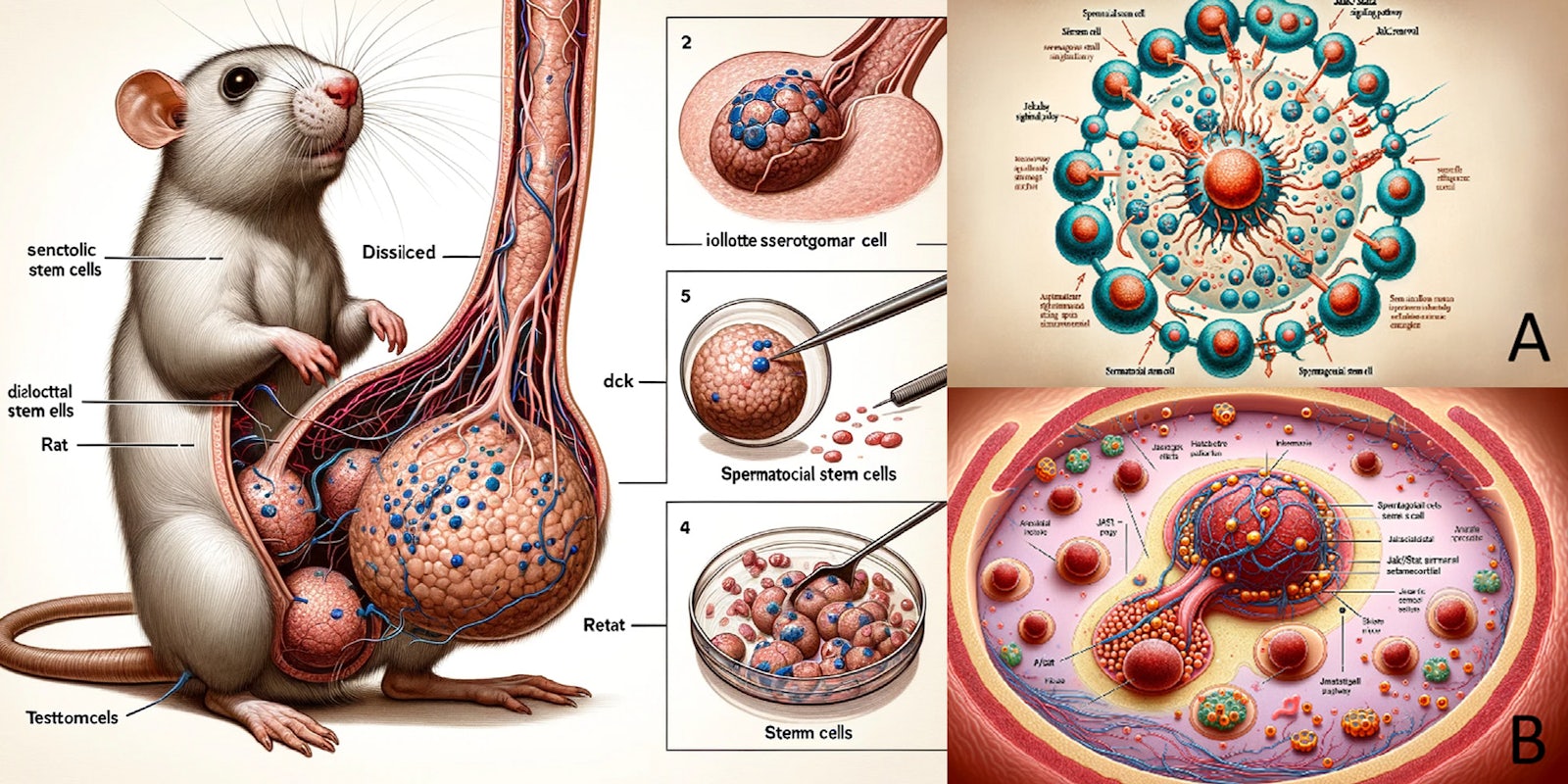Some of the biggest names in academic publishing, like Nature, Elsevier, and Springer, have implemented policies banning the use of generative artificial intelligence in their publications in the past year. But not all peer-reviewed journals are following suit, and the results are baffling.
“It’s finally happened. A peer-reviewed journal article with what appear to be nonsensical AI generated images. This is dangerous,” posted @kareem_carr on X on Thursday.
The images, one of them featuring a bizarre cross-section illustration of an enormous gland ascending from a quizzical lab rat’s groin, are from a paper published in the 2023 volume of Frontiers in Cell and Developmental Biology. The journal is published by Frontiers, which is known for peer-reviewed, open-access papers.
According to Frontiers’ AI use by authors policy, authors can’t list generative AI technology as a co-author, and the authors of the paper are responsible for the “factual accuracy of any content created by the generative AI technology.”
Authors are also required to note the production of the content by using a generative AI technology in the acknowledgments section of their manuscript.
The paper, titled ‘Cellular functions of spermatogonial stem cells in relation to JAK/STAT signaling pathway,’ includes an acknowledgment that the images in the paper were generated by Midjourney. The viral image of the rat testes is supposed to be illustrating “Spermatogonial stem cells, isolated, purified and cultured from rat [testes].” The paper includes a review of so-called “Spermatogonial stem cells in the [testes] of male mammals,” which had “self-renew” capabilities that are “essential for tissue regeneration” and other applications in regenerative medicine.
On X, outrage piled up over the image, which included sloppy, AI-rendered text full of misspellings.
“Erm, how did Figure 1 get past a peer reviewer?!” asked @DrCJ_Houldcroft.
“This one almost as good,” added @TriggerLoop, posting another incomprehensible illustration.
“I’ve only got an undergrad and cell biology is not my area but I was concerned I didn’t understand enough to work out what was wrong… is the answer more or less the whole thing?” asked @StillABookShelf.
“Yes. Complete nonsense,” replied @mic_kue.
Others wondered how peer review didn’t stop the flawed illustrations from getting published.
“I generally always defend peer reviewers but this is egregious,” posted @analyticabyss. “How do you not notice that?”
Some posters had an explanation for that: they attributed it to what they say is the low quality of Frontier journals in general.
“Frontier journals are trash,” said one poster dismissively.
“Frontiers In has some…history…,” added @ValoisDuBins, pointing to a report on the Predatory Reports blog detailing some practices on the part of the publishing company, including a lack of editorial independence, an overriding commitment to profit maximization over paper quality, and that those issues could threaten patients.
“I realized I had very little to say,” one editor said. “I felt like a puppet on a string.”
The report also criticized Frontiers’ breakneck publishing speed, including 85,000 papers published in 2021 alone, up 77% from the year before.
“We thank the readers for their scrutiny of our articles,” Frontier’s account posted in response to one person mocking the illustrations. “[W]hen we get it wrong, the crowdsourcing dynamic of open science means that community feedback helps us to quickly correct the record.”
But people weren’t buying the spin.
“By which you mean ‘when neither the reviewers nor the editor even look at the paper,’” replied @aero_anna.
“It is completely wrong! In an absurd way!” posted @MarceloOG3. “This is clear evidence that there is no revision process involved.”



